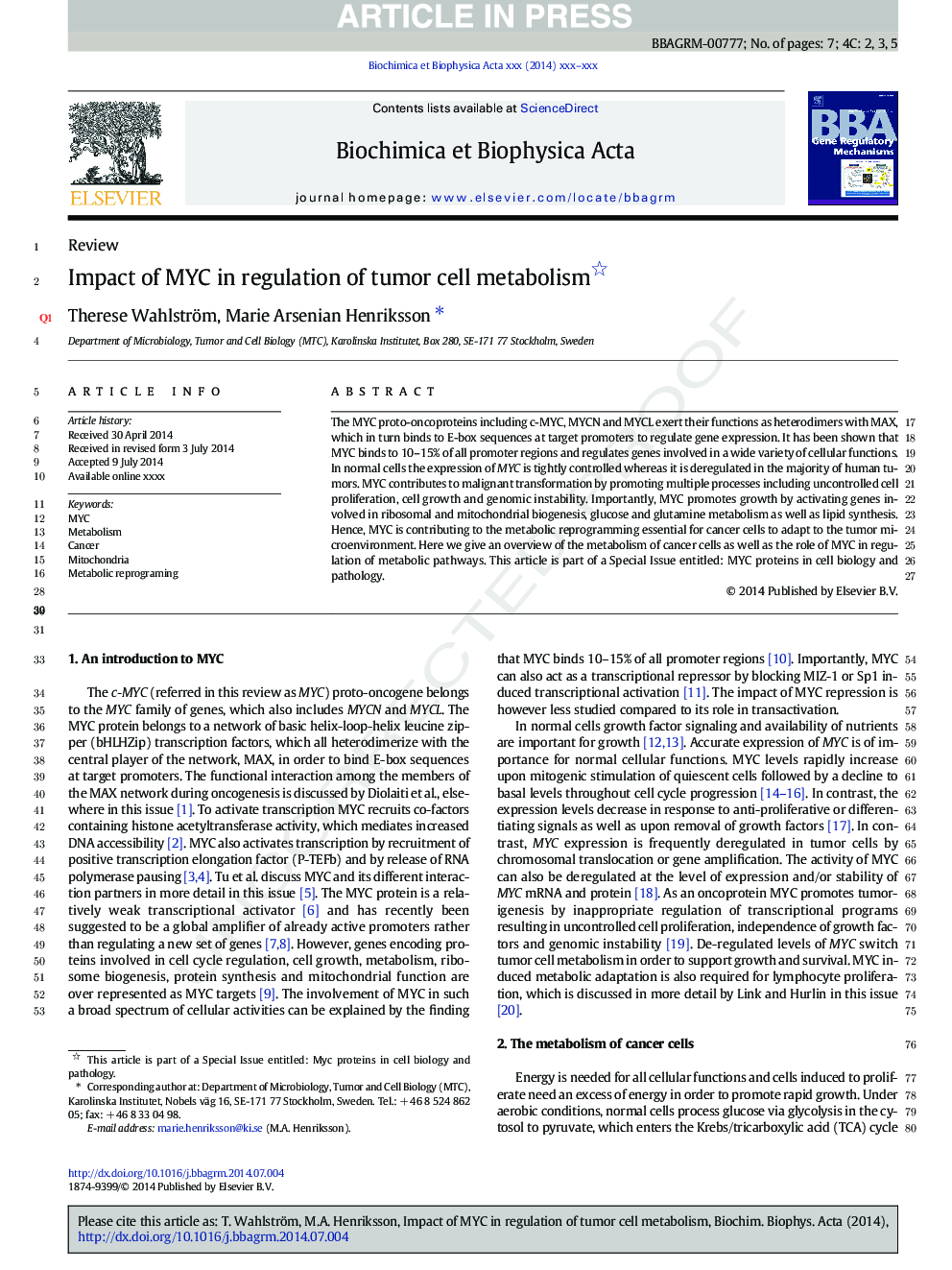| Article ID | Journal | Published Year | Pages | File Type |
|---|---|---|---|---|
| 10798995 | Biochimica et Biophysica Acta (BBA) - Gene Regulatory Mechanisms | 2015 | 7 Pages |
Abstract
The MYC proto-oncoproteins including c-MYC, MYCN and MYCL exert their functions as heterodimers with MAX, which in turn binds to E-box sequences at target promoters to regulate gene expression. It has been shown that MYC binds to 10-15% of all promoter regions and regulates genes involved in a wide variety of cellular functions. In normal cells the expression of MYC is tightly controlled whereas it is deregulated in the majority of human tumors. MYC contributes to malignant transformation by promoting multiple processes including uncontrolled cell proliferation, cell growth and genomic instability. Importantly, MYC promotes growth by activating genes involved in ribosomal and mitochondrial biogenesis, glucose and glutamine metabolism as well as lipid synthesis. Hence, MYC is contributing to the metabolic reprogramming essential for cancer cells to adapt to the tumor microenvironment. Here we give an overview of the role of MYC in regulation of metabolic pathways in tumor cells. This article is part of a Special Issue entitled: MYC proteins in cell biology and pathology.
Related Topics
Life Sciences
Biochemistry, Genetics and Molecular Biology
Biochemistry
Authors
Therese Wahlström, Marie Arsenian Henriksson,
